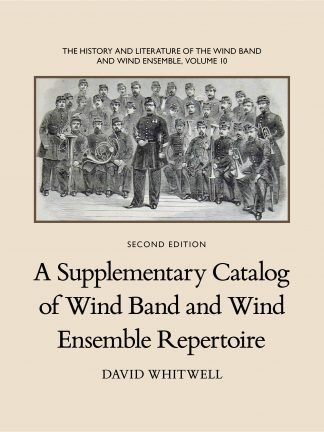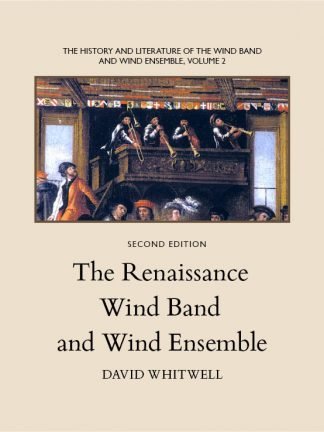Description
The History and Literature of the Wind Band and Wind Ensemble, volume 9
One of the most amazing accomplishments of contemporary music publication. — Wolfgang Suppan, Internationale Gesellschaft zur Erforschung und Forderung der Blasmusik, Mitteilungsblatt, Nr. 15, Marz, 1985.
This History and Literature of the Wind Band and Wind Ensemble will remain for a long time the principal source for the ultimate study of the literature of wind instruments. — Giovanni Ligasacchi, “Quattro Secoli di Storia La Letteratura degli Stromenti a Fiato,” Brescia Musica (Italy), Anno V, n. 21, Febbraio, 1990.
Nineteenth-Century Wind Band and Wind Ensemble Repertoire is the ninth volume in Dr. David Whitwell’s ground breaking thirteen-volume History and Literature of the Wind Band and Wind Ensemble series. This volume is a companion to the fifth volume in this series, The Nineteenth-Century Wind Band and Wind Ensemble. During the first decades of the nineteenth century one finds continued composition of music for Harmoniemusik. After the end of the Napoleonic Wars there was a new birth of civic bands in Europe and this resulted in numerous original compositions for large concert band. For society at large, however, the nineteenth century was one of enormous interest in all things military, which resulted in a great deal of marches and dance music. One very important exception is a large body of slow, expressive and beautiful original music composed for the church, music which was performed during the church service, including communion, as part of an annual recognition of the military by the clergy. Whitwell’s meticulous scholarship reveals the continuous history of the wind ensemble, from its earliest roots to the nineteenth century–an unbroken tradition of wind music that music scholars have never been fully able to appreciate until now.
All earlier efforts stand in the shade of this undertaking … Whitwell’s great undertaking presents not only an abundance of new material, which belongs to the literature of anyone interested in wind music but also creates a new dimension for discussion by musicologists. One can not thank Whitwell enough. — Wolfgang Suppan, Oesterreichische Blasmusik, Nr. 5, 1983.





